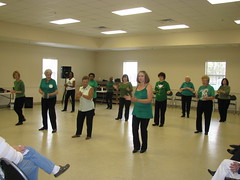
Susan Hill et al in a study for Disability and Rehabilitation, December 2011 discuss a study whose purpose is to describe. Osteoarthritis (OA) as the commonest reason for a musculoskeletal consultation in primary care in older adults. There is evidence that appropriate advice and management is sub-optimal. The aim of this study was to explore perceptions and experiences of the treatment and management of hand OA in older adults.
The methods used in the study were four focus groups who were conducted with primary (n === 15) and secondary (n === 14) care participants aged 50-84 years (mean age 64.9 years; 3 males, 14 females) with a clinical diagnosis of hand OA. Data were tape-recorded, transcribed and analysed using thematic analysis and constant comparison method.
The results showed that participants described a lack of help and information with regards to management of their hand OA and also a perceived lack of understanding of the impact of hand OA on the individual. Some received contradictory advice about its management. Beliefs about treatment efficacy were balanced against perceived and actual side-effects and tolerance, and such perceptions appeared to influence the use of alternative therapies.
The conclusions reached were that the study identified a perceived unmet need in people with hand OA presenting in primary and secondary care. This may be due to the clinical uncertainty of treatment, lack of high-quality randomised controlled trials evaluating therapeutic options, and the limited written information available incorporating the patient experience. The study emphasised the need to understand patient illness and treatment beliefs. A better understanding of illness and treatment beliefs will facilitate the use of evidence-based approaches in the management of hand OA.
The Tutor devices provide for interactive rehabilitation exercises and can alleviate some of the shoulder and other joint pain.
The Tutor system, consisting of the HandTutor, ArmTutor, LegTutor and 3DTutor, has been developed to allow for functional rehabilitation of the whole body including the upper and lower extremity. The system consists of ergonomic wearable devices and dedicated rehabilitation software that provide patient instructions and feedback to encourage intensive massed controlled exercise practice. The Tutor system allows for controlled exercise of multijoints within the normal movement pattern which prevents the development of undesired and compensatory joint movement and ensures better performance of functional tasks. Additional features of the Tutor system include quantitative evaluation, objective follow up and tele-rehabilitation.
The new medical devices are available for children as well as adults and through the use of telerehabilitation and are FDA and CE certified.
No comments:
Post a Comment